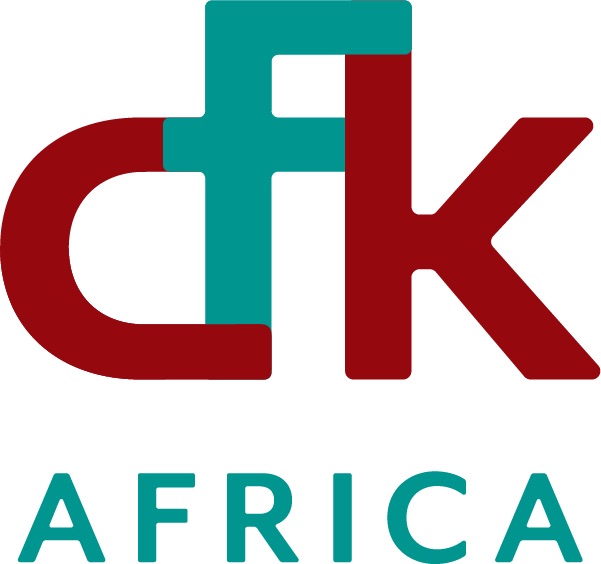Written by Hannah Bain.
A lot has changed in 20 years. Back in 2001, CFK co-founders Tabitha Festo, Salim Mohamed, and Rye Barcott established CFK with a sports for development program, one-room clinic, and commitment to serving the community. Our sports program blossomed into a comprehensive youth leadership development strategy, engaging young people through scholarships, mentorship, job training opportunities, and entrepreneurship courses.



Our one-room clinic grew to a three-story facility that is a “one-stop-shop” for primary health care services and houses the Centers for Disease Control and Prevention’s largest overseas population-based infectious disease surveillance platform, helping monitor and inform responses to potential public health crises.


The more we engaged with the community, the more opportunities we found to address pressing needs. Mothers told us about the challenges they had accessing affordable, high-quality maternity care, so we established a maternity home staffed with skilled birth attendants. That facility has recorded zero maternal deaths since opening in 2019 and has begun attracting mothers from outside of Kibera thanks to the exceptional level of care it provides.


Through our clinic and team of Community Health Volunteers, we began noticing alarming rates of malnutrition in our community, so we created a nutrition program led by trained nutritionists and partnered with early childhood development centers to ensure children met critical physical and developmental milestones. We reached 17,000 children under 5 with transformational nutrition services last year alone.


Youth confided in our staff members, sharing that they and their friends were often not comfortable accessing health care services such as counseling and family planning in standard facilities. They said they would seek out those services more frequently if they had a youth-friendly space designed specifically for them, so we opened a Young Health and Wellness Centre. Last year, the facility served over 2,800 youth with services ranging from HIV testing to mental health counseling.


Through these intentional interactions with community members over the last 20 years, we have learned important lessons about working in informal settlements. We’ve learned how to best engage community members by working with them on multiple levels, from the community, to household, to individual. We’ve built local leadership capacity by investing in education and job training initiatives. And we’ve implemented data-driven programs by collaborating with local and international universities and research institutions. With each of these lessons, we’ve evolved, and now we are taking what we’ve learned to additional informal settlements across Kenya.
From Carolina for Kibera to CFK Africa
With over 1,400 informal settlements in Kenya alone, our programs and model of community engagement can impact thousands more living in some of the country’s most challenging environments. In 2021, we began expanding our services to additional informal settlements in Nairobi and across seven new counties in Kenya: Kajiado, Kiambu, Kilifi, Kisumu, Machakos, Mombasa, and Nakuru. Much like our work in Kibera, this expansion has been driven by research and partnerships and informed by each community’s most pressing needs.
As we began expanding to new areas, we realized that our name, “Carolina for Kibera” became limiting. As organizations evolve, it is natural for their names to evolve with them. So, while we remain committed to continuing our work in Kibera, we decided it was time for a new name, one that would capture our exciting new growth. We gathered feedback from staff members, board members, and key external stakeholders on potential names, and we are thrilled to share – after months of discussion – that Carolina for Kibera is now CFK Africa. This new name retains the acronym “CFK,” reminding us where we started, and serves as a signal of our ambitious plans for growth.
With a new name came a new mission and logo. As we prepared to launch CFK into its next decade of service, we reevaluated our strengths as an organization and made them the focus of our new mission, to improve public health and economic prosperity in informal settlements.
For our new logo, we stayed true to our model of participatory development, gathering input from staff members, board members, external stakeholders, community members, and young alumni from our scholarship project. This new logo illustrates CFK’s commitment to health and economic development and demonstrates the interconnected nature of our programming.


Looking Back, Moving Forward
As we begin this new decade of service, we want to take a moment to pause and give thanks to those whose support made the last 20 years possible. We wouldn’t be where we are today without dedicated staff members – some of whom have been with us for over a decade – generous board and advisory council members who volunteer their time and expertise to help us reach our goals, and supportive partners and donors who help us reach new heights.
Most importantly, we want to thank the Kibera community for giving us a home, teaching us, inspiring us, and working with us to transform lives. Kibera will always have a special place in our heart, and we look forward to remaining a fixture in the community even as we move into this next stage of growth.
Help fuel our expansion and continued impact.
